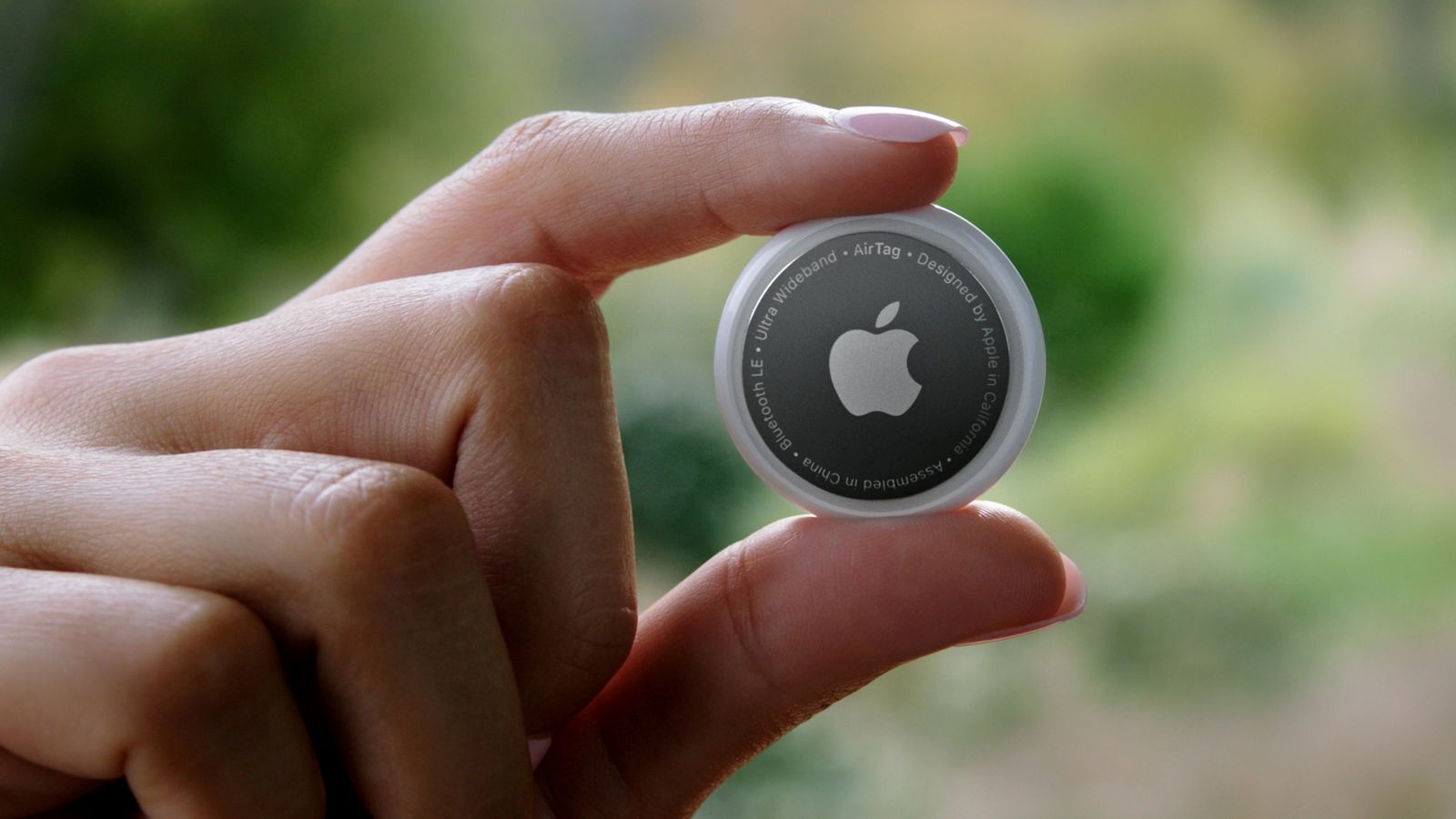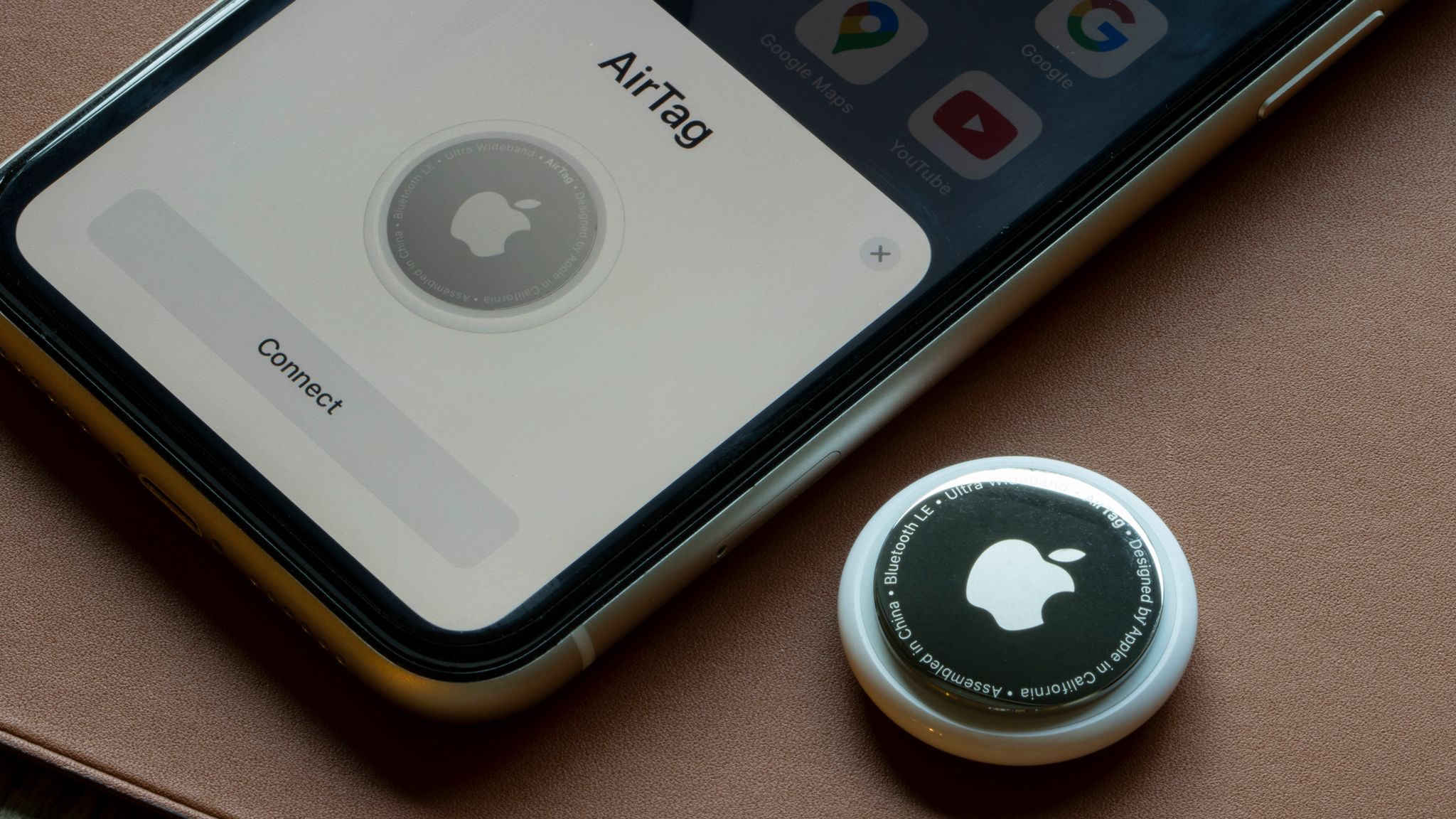Apple and Google have teamed up to thwart people who try to track others using devices designed to help find lost keys and luggage.
The rival tech giants do not often collaborate on new features for their smartphones, with a joint initiative to create contact tracing software during the pandemic one of few past examples.
But now they have submitted a proposal to set standards for combating secret surveillance, following reports that gadgets like Apple’s AirTags have been used for malicious purposes.
A lawsuit filed in San Francisco in December alleged that women had been stalked by ex-partners who hid the devices in their belongings – including a car and a child’s backpack.
Apple insisted it had made the small, disc-shaped gadgets “stalker-proof”, but has acknowledged that “bad actors” have tried misusing them.
While AirTags have become especially popular since being released in 2021, the same concerns apply to similar products including Tile and Pebblebee.
The devices use Bluetooth technology and are designed to be attached to easily lost items like wallets, which then show up in an app on the user’s smartphone.
‘Industry-wide action required’
Apple and Google, which run the iOS and Android mobile operating systems respectively, have previously worked on their own solutions to the malicious tracking issue.
iPhone users are now warned if an unknown AirTag might be “travelling with them”, for example.
But the two companies want to go further by proposing an industry standard, and they hope to submit it to an organisation called the Internet Engineering Task Force later this year.
Dave Burke, Google’s vice president of engineering for Android, said the issue of unwanted tracking “requires industry-wide action to solve”.
More from science and tech:
Find out if you’re a ‘super memoriser’
How British scientist became the ‘Godfather of AI’
A draft proposal has suggested security upgrades that apply to all tracking devices would be delivered via regular software updates to Apple and Android smartphones.
The move was welcomed by campaigners, with the National Network to End Domestic Violence’s Safety Net Project saying it would “decrease the burden on survivors in detecting unwanted trackers”.

